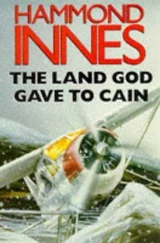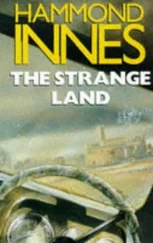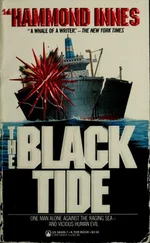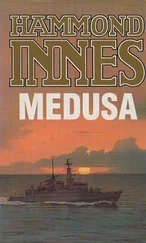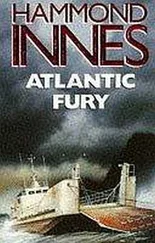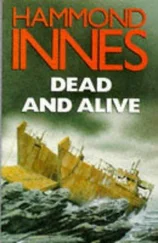Hammond Innes - The Trojan Horse
Здесь есть возможность читать онлайн «Hammond Innes - The Trojan Horse» весь текст электронной книги совершенно бесплатно (целиком полную версию без сокращений). В некоторых случаях можно слушать аудио, скачать через торрент в формате fb2 и присутствует краткое содержание. Жанр: Прочие приключения, на английском языке. Описание произведения, (предисловие) а так же отзывы посетителей доступны на портале библиотеки ЛибКат.
- Название:The Trojan Horse
- Автор:
- Жанр:
- Год:неизвестен
- ISBN:нет данных
- Рейтинг книги:4 / 5. Голосов: 1
-
Избранное:Добавить в избранное
- Отзывы:
-
Ваша оценка:
- 80
- 1
- 2
- 3
- 4
- 5
The Trojan Horse: краткое содержание, описание и аннотация
Предлагаем к чтению аннотацию, описание, краткое содержание или предисловие (зависит от того, что написал сам автор книги «The Trojan Horse»). Если вы не нашли необходимую информацию о книге — напишите в комментариях, мы постараемся отыскать её.
The Trojan Horse — читать онлайн бесплатно полную книгу (весь текст) целиком
Ниже представлен текст книги, разбитый по страницам. Система сохранения места последней прочитанной страницы, позволяет с удобством читать онлайн бесплатно книгу «The Trojan Horse», без необходимости каждый раз заново искать на чём Вы остановились. Поставьте закладку, и сможете в любой момент перейти на страницу, на которой закончили чтение.
Интервал:
Закладка:
When he had hung the films in the drying cupboard, he came over to where I was sitting, obediently drinking beer. ‘Now,’ he said, ‘whilst that’s drying off, perhaps you’ll tell me something of what it’s all about — or is that a deadly secret?’
‘No, it’s not altogether a secret,’ I said. ‘At any rate, I’ll tell you something of what it’s about.’ So I told him that part of Schmidt’s story which was directly connected with the book. I did not tell him who my visitor had been. But I told him sufficient to explain the book. And when I had finished, he shook his head and said, ‘Mon, if I didna ken ye were a guid Scotsman, I’d say ye had been drinking. It all sounds very melodramatic, but at least you’ve got the writing in the book to prove your story.’ Then he got up and went over to the drying cupboard and took out the negative. ‘Now let’s have a look at it under the enlarger.’ He led the way back into the dark-room and closed the door behind us. Then he switched on the enlarger and a square of light was flung on to the printing table. He fitted the end of the negative into the slot below the lens of the instrument and immediately the blurred outline of the photograph appeared on the white paper clamped to the printing table. He manoeuvred it into position and then adjusted the enlarger. And suddenly the photograph was in focus and the lines of print, written lightly with a pen, showed below it.
But it made no sense at all. The first line ran: SDGME DOLI R BXONSOVCO NGN XCOH BSOH. And the rest of it was the same jumble of meaningless letters. Yet, even in these printed letters, I thought I could discern the neat hand of Schmidt. David shifted the negatives along to the next photograph. They were all much the same as the first, though the last negative was blank and the one before it only two-thirds completed. He ran the whole length of celluloid through the enlarger and in all the five pages, with their lines of closely printed words, there was not one that made sense.
‘Your boy friend is either pulling your leg,’ said David, ‘or else this is in code. Don’t you know something about codes?’
I shook my head. ‘Not much,’ I admitted. ‘But one thing I do know, and that is that, if you don’t know the key, a good code takes three to six months’ hard work by experts to break down.’
‘Well, I’ll take a print of each one of these, and then we’ll see whether we can make anything of it.’
But we couldn’t. I copied the first few lines of the first page from the image cast by the light from the enlarger, and worked on this whilst David took a print of it. But it was no good. I knew something about the theory of codes and I tried to break it down by the usual method of picking out the letters that occurred most frequently and changing them to the letters most commonly in use. But I had no success by the time David had completed the print. I decided that the clue was probably in the book. I flicked through the pages to see if at any point the author had given a method for breaking down a code. Rows of meaningless capital letters would have stood out quite clearly against the background of ordinary print. But there was nothing of that sort and I realised that the only thing to do was to read through the book. I told David so and he grunted. He was absorbed, as I had been for the last half-hour, in trying to work it out for himself.
I read that book through from beginning to end and, in the whole story, there wasn’t a single mention of codes. When I had finished, I threw it from me in disgust. David was no longer in the studio and I heard the rattle of tea-cups in the back premises. The print he had been working on was lying amongst a heap of old stock and hypo dishes. I lit a cigarette. A moment later he came in with tea. He glanced at the book lying sprawled on its side on the couch. ‘You don’t seem to have been any more successful than I have,’ he said.
‘I’m fed up with the thing,’ I replied savagely.
‘Never mind,’ he said, as he poured out some tea, ‘I gathered you enjoyed the book. Whilst I was working, I heard several appreciative chuckles.’
That was true enough. I had enjoyed the book. But, as so often happens, the return to reality had produced a mood of depression. I felt convinced that the supposed code had no meaning, that Schmidt was mad and had been living melodrama in real life. I told David so and he shrugged his shoulders. ‘You know best,’ he said. ‘But don’t you know anyone who understands codes? I mean, after all, we’ve only been working on this a very short time and we’re not experts. I know something about them, and I haven’t nearly exhausted the possibilities. I tried the Playfair Code — you know, the one that depends on a keyword and you put the letters down in fives together with the rest of the alphabet and then work on rectangles. It’s one of the few you can’t break down by placing the letter that recurs most frequently. I tried using The Face from the Barbican as the key-word, but that didn’t make much sense. If there is any sense in the words, it must be a code like that. I can’t believe a man who was just jotting down meaningless letters would have gone on with it for five whole pages.’
‘You may be right,’ I said, ‘but I’m still fed up with the whole business.’
‘Well, it’s your affair, not mine. But don’t you know anyone at the Foreign Office? They have decoding experts.’
I stretched myself and clambered stiffly to my feet. ‘Yes, I suppose it would be worth trying. There’s Graham Aitken, he’d be able to get them to have a look at it for me.’
‘All right then. If not, there’s my godfather, Sir Geoffrey Carr, at the Home Office. Anyway, leave the book with me and, if you come round any time after, say eleven tomorrow, I’ll have some good prints for you. I want to retake two of the pages, as they haven’t come out very well.’ He picked the print he had been working on up from the litter in which it lay. ‘You might like to take this to bed with you. Nothing like sleeping on a puzzle.’
I nodded and tucked it into my overcoat pocket. Then I thanked him and said I’d be round some time after eleven. I don’t remember leaving the studio. The beer on top of my dinner had made me very sleepy. But the cold air of Shaftesbury Avenue soon woke me up. I decided to walk back to my rooms, and I cut down into Leicester Square, where a nearly full moon sailed serenely over the trees and the dark outline of the Odeon tower.
Back at my rooms in the Temple, I found the walk had driven away my sleepiness. I lay in bed and struggled ceaselessly for the clue to the code. With my sleepiness I found my incredulity had also vanished. I reviewed the whole evening and began to wonder once more whether it had been just an accident that that man had cannoned into me in the Charing Cross Road. But for the chance of a passer-by, his hand would have closed on the book, and I wondered whether he would have given it back to me. My mind drifted back to Schmidt himself and I tried to deduce from what he had told me whether or not he was mad. His story had been convincing and I came back, of course, to the melodramatic close of the interview.
I heard him saying once more, ‘Will you go round to my lodgings and take The Face from the Barbican.’ Well, there had been nothing phoney about that. The Face from the Barbican had been there all right and, what was more, his rooms had been searched. But then Leinster might have searched them for valuables. I was beginning to feel drowsy. My brain, tired with the excitement of the evening, was beginning to think in circles. What had Schmidt said then? ‘You are clever. You will understand.’ And then-
Suddenly I was wide awake. I jumped out of bed and hurried into my dressing-gown. I switched on the light and the electric fire and went out into the hall, where my overcoat lay over a chair. I pulled the photograph that David had given me from the pocket and hurried back into my bedroom. Then, huddled over the fire with a pencil and paper, I tried the Playfair Code.
Читать дальшеИнтервал:
Закладка:
Похожие книги на «The Trojan Horse»
Представляем Вашему вниманию похожие книги на «The Trojan Horse» списком для выбора. Мы отобрали схожую по названию и смыслу литературу в надежде предоставить читателям больше вариантов отыскать новые, интересные, ещё непрочитанные произведения.
Обсуждение, отзывы о книге «The Trojan Horse» и просто собственные мнения читателей. Оставьте ваши комментарии, напишите, что Вы думаете о произведении, его смысле или главных героях. Укажите что конкретно понравилось, а что нет, и почему Вы так считаете.

